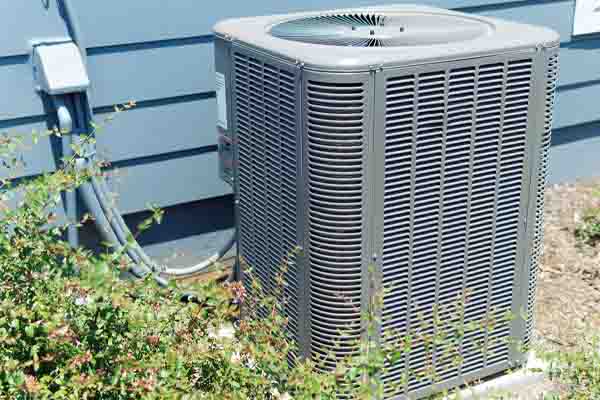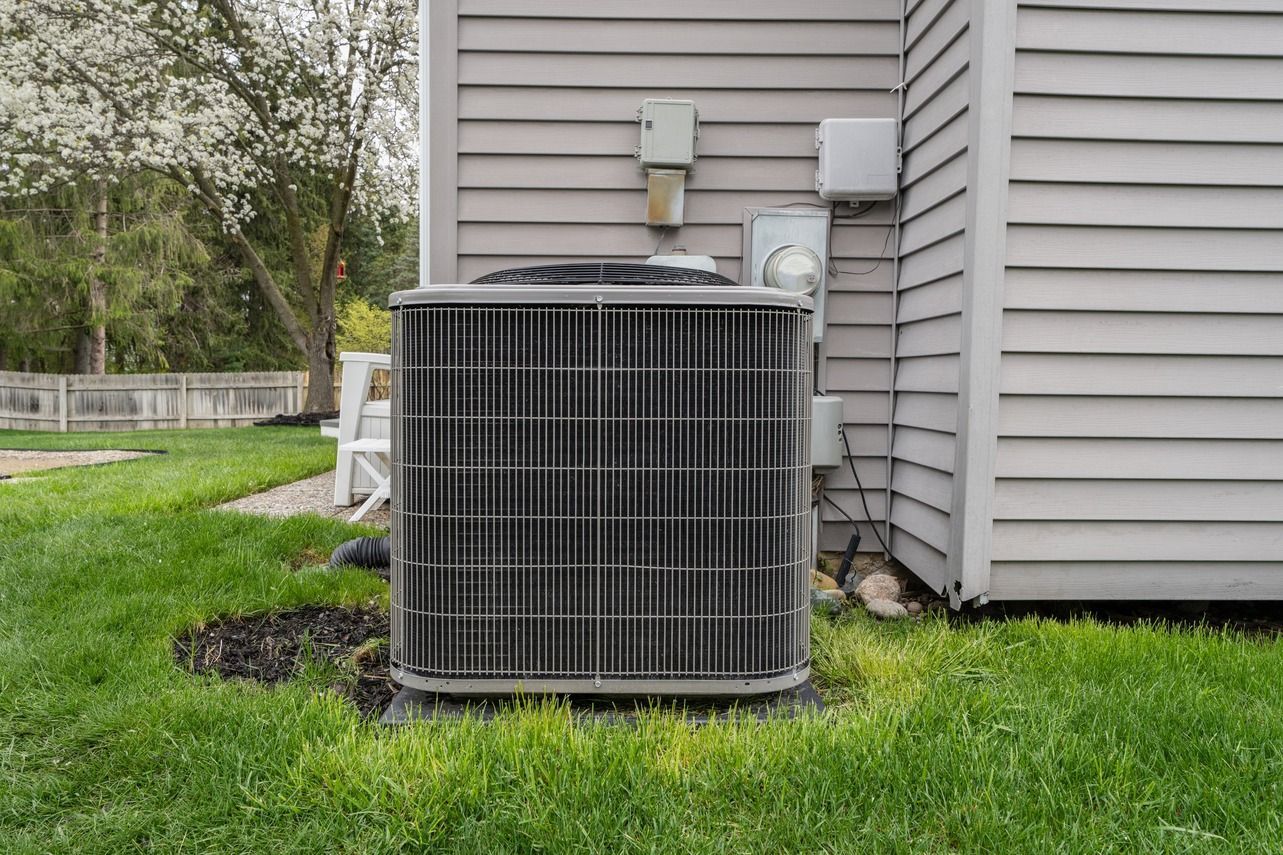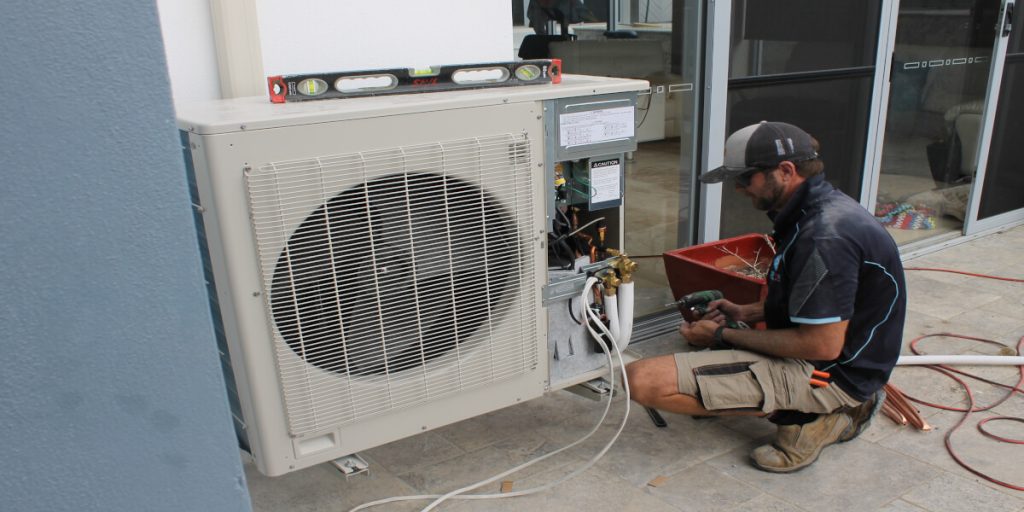Air Conditioner Outside Unit Not Working

The outdoor unit of an air conditioner, often called the condenser, is the workhorse of your cooling system. When it fails, the consequences range from discomfort to potential health risks. Understanding the potential causes of a non-functioning outside AC unit is crucial for HVAC technicians and homeowners alike. This article dives deep into troubleshooting, career implications, and industry trends related to this essential component.
Diagnosing a Silent Condenser: A Technician's Guide
Before jumping to conclusions, a systematic approach is key. Here's a breakdown of common issues that can prevent an outdoor AC unit from functioning properly:
- Power Problems: This is the first place to check. Is the unit receiving power? A tripped circuit breaker is a frequent culprit. Check the breaker panel dedicated to the AC unit and reset it if necessary. If it trips immediately again, there's likely a short circuit demanding further investigation. Also, inspect the disconnect switch near the outdoor unit. It might be turned off accidentally.
- Capacitor Failure: Capacitors provide the jolt of energy needed to start the compressor and fan motor. A failing capacitor is a common issue. Symptoms include a humming noise but no fan movement, or the fan starting slowly. Replacement is usually straightforward but requires proper safety precautions due to the capacitor's stored electrical charge. An HVAC technician is best equipped to handle this.
- Compressor Issues: The compressor is the heart of the system. A failing compressor is a serious problem, often signaling the end of the unit's lifespan. Overheating, unusual noises, and a lack of cooling are all indicators. Testing the compressor requires specialized equipment and knowledge. Replacement is expensive, making a full system replacement sometimes the more economical option.
- Fan Motor Problems: The condenser fan is crucial for dissipating heat. If the fan motor fails, the unit will overheat and shut down. Check for obstructions, damaged fan blades, or a seized motor. A multimeter can test the motor's continuity to determine if it's burned out.
- Refrigerant Leaks: Low refrigerant levels can prevent the compressor from operating correctly. Leaks can occur at various points in the system, and detecting them requires specialized equipment and knowledge. EPA Section 608 certification is required to handle refrigerants. Adding refrigerant without fixing the leak is illegal and environmentally irresponsible.
- Dirty Condenser Coils: Over time, dirt, leaves, and debris can accumulate on the condenser coils, reducing their ability to dissipate heat. A simple cleaning with a garden hose (with gentle pressure) can often restore proper function.
- Contactor Problems: The contactor is an electrical relay that switches power to the compressor and fan motor. A faulty contactor can prevent the unit from starting. Burned or pitted contacts are a sign of failure.
- Frozen Coils: While seemingly counterintuitive, frozen evaporator coils (indoor unit) can indirectly cause the outdoor unit to stop working. The system is designed to shut down to prevent compressor damage if the coils freeze. Causes include restricted airflow (dirty air filter), low refrigerant, or a malfunctioning metering device.
Tools of the Trade: Essential for Troubleshooting
Accurate diagnosis requires the right tools:
- Multimeter: For testing voltage, current, and resistance.
- Refrigerant Gauges: To measure refrigerant pressure.
- Capacitor Tester: To assess capacitor health.
- Leak Detector: To pinpoint refrigerant leaks.
- Vacuum Pump: To evacuate air and moisture from the system after repairs.
- Recovery Machine: To safely recover refrigerant.
Career Pathways and Certification: Level Up Your HVAC Skills
The HVAC industry offers diverse career paths, from entry-level technicians to specialized roles. The Bureau of Labor Statistics projects a growth rate of 6% for HVAC mechanics and installers from 2022 to 2032, adding about 39,300 jobs over the decade. The median annual wage for these professionals was $59,620 in May 2023. However, experience, specialization, and location significantly impact earning potential.
Entry-Level Technician: This typically involves assisting experienced technicians with installations, maintenance, and repairs. A high school diploma or GED is often sufficient, but formal HVAC training is highly recommended.
HVAC Technician: With experience and training, technicians can independently diagnose and repair HVAC systems. This requires a strong understanding of electrical, mechanical, and refrigeration principles.
HVAC Installer: Installers specialize in the installation of new HVAC systems, including ductwork, piping, and equipment connections.
HVAC Service Manager: Service managers oversee a team of technicians, scheduling appointments, managing inventory, and ensuring customer satisfaction.
HVAC Sales Engineer: Sales engineers work with clients to design and specify HVAC systems for commercial and industrial applications.
Certifications: Certifications validate your skills and knowledge, enhancing your career prospects and earning potential.
- NATE (North American Technician Excellence): NATE certification is widely recognized as a mark of excellence in the HVAC industry. It demonstrates proficiency in specific areas, such as installation, service, and light commercial HVAC. NATE offers several different certifications, allowing technicians to specialize. Passing the NATE certification can result in higher pay scale.
- EPA Section 608 Certification: Required by the Environmental Protection Agency (EPA) for anyone who handles refrigerants. This certification ensures that technicians understand proper refrigerant handling procedures to protect the environment. There are different types of 608 certifications, depending on the type of equipment being serviced.
- HVAC Excellence: HVAC Excellence offers a range of certifications for technicians and instructors, focusing on various aspects of HVAC technology.
- State and Local Licensing: Many states and municipalities require HVAC technicians to be licensed. Licensing requirements vary by location.
Real-World Example: Sarah started as an entry-level technician after completing a two-year HVAC program at her local community college. She focused on obtaining her NATE certification, specializing in residential HVAC service. Over the next five years, she gained extensive experience troubleshooting and repairing various HVAC systems. With her NATE certification and proven track record, Sarah was promoted to a lead technician role, supervising a team of junior technicians. She also pursued additional training in energy efficiency and building automation, further enhancing her career prospects.
Employer Considerations: Hiring and Training Strategies
Finding and retaining skilled HVAC technicians is a challenge for many employers. Here are some strategies to attract and develop talent:
- Offer Competitive Compensation and Benefits: Competitive salaries, health insurance, retirement plans, and paid time off are essential to attract and retain top talent.
- Provide Training and Development Opportunities: Invest in training programs to enhance the skills of your employees. Offer opportunities for certifications and continuing education.
- Create a Positive Work Environment: Foster a culture of teamwork, respect, and recognition. Provide employees with the tools and resources they need to succeed.
- Partner with Trade Schools and Community Colleges: Build relationships with local educational institutions to recruit promising students.
- Offer Apprenticeship Programs: Apprenticeships provide on-the-job training and mentorship, allowing individuals to learn the trade while earning a living.
Example: A large HVAC company implemented a comprehensive training program for its technicians. The program included classroom instruction, hands-on training, and mentorship from experienced technicians. The company also partnered with a local trade school to offer apprenticeship opportunities. As a result, the company saw a significant improvement in employee retention and customer satisfaction.
Industry Trends: The Future of HVAC
The HVAC industry is constantly evolving, driven by technological advancements and changing consumer preferences. Here are some key trends to watch:
- Smart HVAC Systems: Smart thermostats, sensors, and controls are becoming increasingly popular, allowing homeowners to remotely monitor and manage their HVAC systems. These systems can optimize energy efficiency and improve comfort.
- Energy Efficiency: Government regulations and consumer demand are driving the adoption of more energy-efficient HVAC systems. High-efficiency furnaces, air conditioners, and heat pumps are becoming the norm.
- Renewable Energy Integration: Solar thermal and geothermal energy are increasingly being integrated with HVAC systems to reduce reliance on fossil fuels.
- Refrigerant Regulations: Regulations regarding refrigerants are becoming stricter, with a focus on phasing out ozone-depleting and high-global warming potential refrigerants. Technicians need to stay up-to-date on the latest refrigerant regulations.
- Indoor Air Quality: Concerns about indoor air quality are growing, leading to increased demand for air purifiers, filtration systems, and ventilation solutions.
By staying informed about these trends and investing in training and development, HVAC professionals can position themselves for success in a dynamic and growing industry. The silent outdoor AC unit presents a multifaceted challenge, demanding a combination of technical expertise, problem-solving skills, and a commitment to staying abreast of industry advancements. Success in this field hinges not only on diagnosing and repairing existing systems but also on embracing innovation and contributing to a more sustainable and comfortable future. Remember to always follow safety protocols and local codes when working with HVAC equipment.










